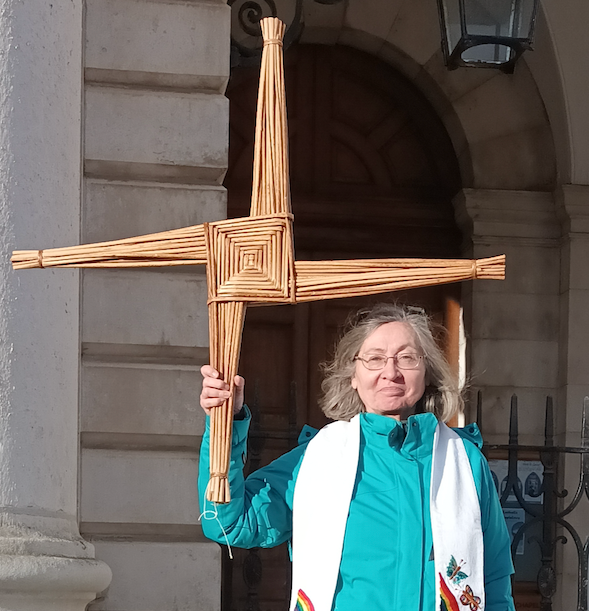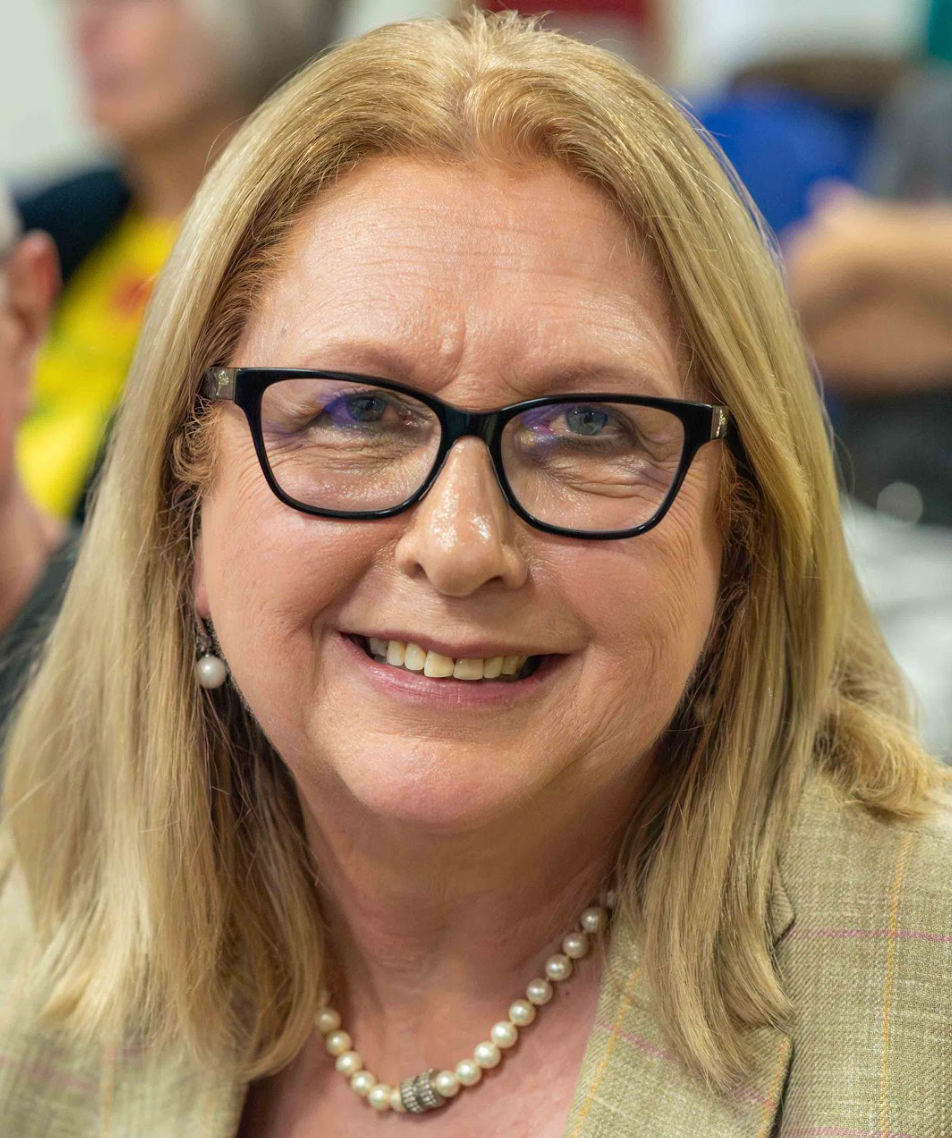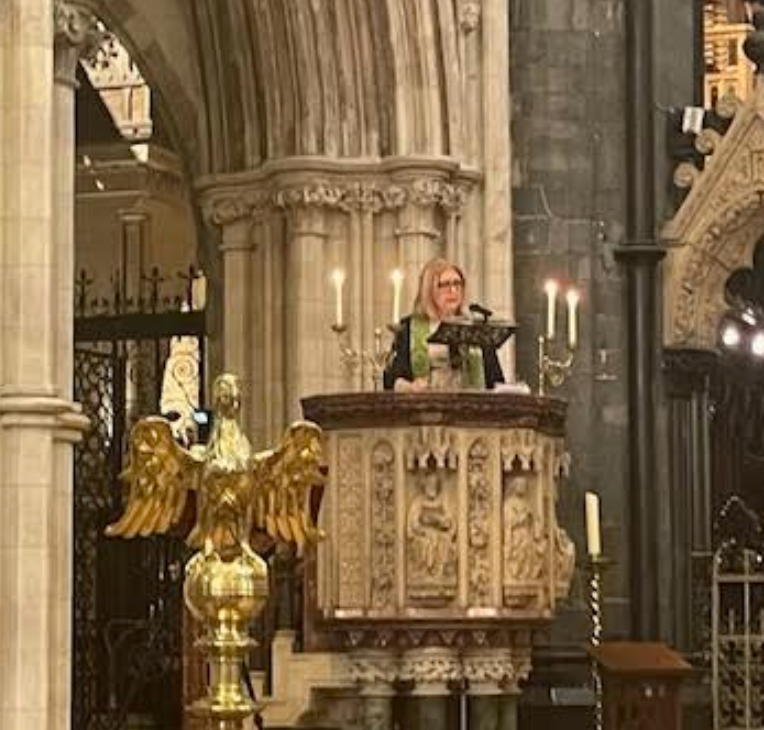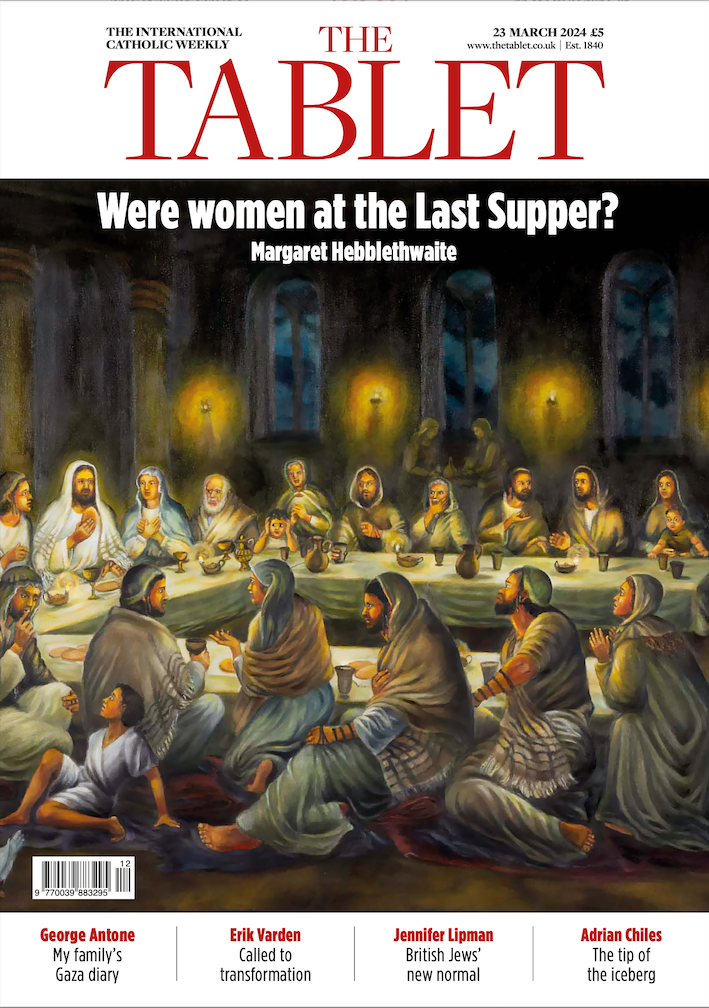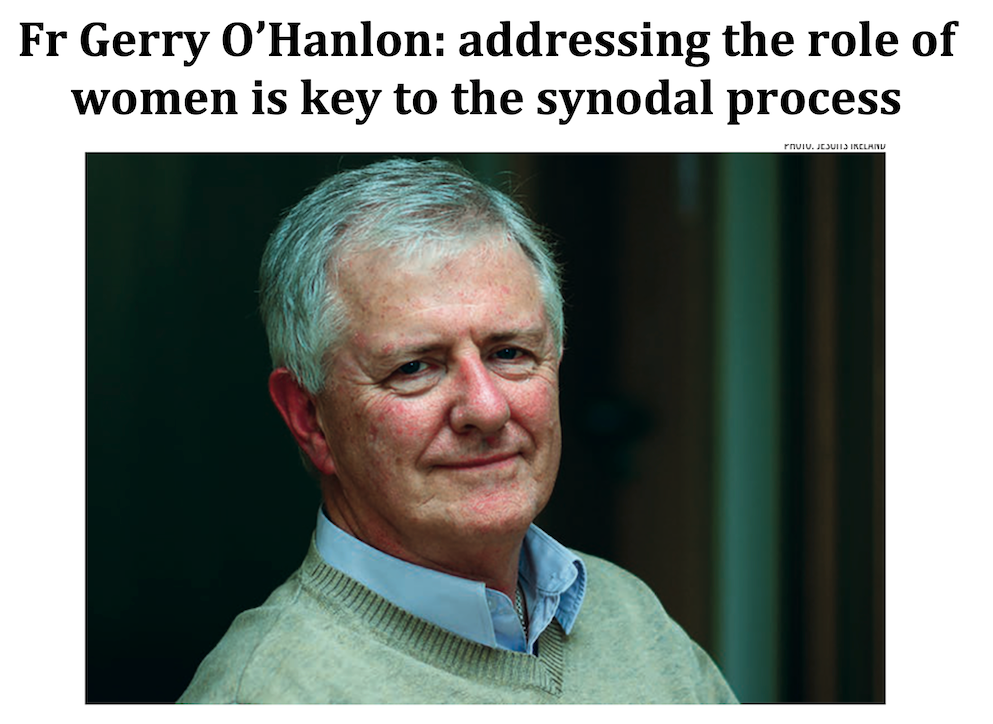Ursula Halligan included in Ireland team for Prague Meeting
Irish delegation made up of 8 women and 6 men.

Archbishop Eamon Martin to attend European Synodal Assembly with Irish delegation
Archbishop Eamon Martin along with 13 other delegates will attend the first ever European Assembly of a Synod within the Catholic Church. There are seven continental assemblies taking place across five continents in a new stage of the synodal process and the European Assembly is taking place in Prague in the Czech Republic from 5 to 12 February 2023.
Archbishop Martin said, “This Assembly in Prague will be a further important step in the ongoing Synodal process of strengthening the Church through prayer and dialogue, and by sharing experiences, questions and hopes for the future. Those of us who will be taking part in the European assembly are conscious of our responsibility to bring the fruits of what has been shared in many gatherings across Ireland in the past fifteen months or so. We are still only at the initial stages of our Synodal journey but already important themes are emerging about the need for healing and renewal in the Church and the challenge of finding fresh ways of offering the hope that comes from our friendship with Christ and with the joy of the Gospel.”
In October 2021, Pope Francis launched a Synod on the theme of synodality, which was a global process with the whole People of God. The first stage of this process was a worldwide listening in each Catholic Diocese (known as the Diocesan Stage). Between October 2021 and May 2022, faith-based conversations and consultations took place across the island of Ireland and, by the 29 May, dioceses and other groups submitted their responses to the Irish Catholic Bishops’ Conference. Each submission was reviewed in a spirit of prayer and discernment over the weekend of Pentecost (June 2022) by members of a National Steering Committee, and the emerging themes were presented to representatives at an assembly in Athlone on 18 June. A National Synthesis from the Catholic Church in Ireland was then prepared and sent to the Synod office in Rome.
At the end of October last year, the Secretariat of the Synod, published its Working Document for the Continental Stage of the Synod, which was a further synthesis of the 112 National Syntheses from the Catholic Church around the world, along with submissions from other religious congregations and groups. Entitled Enlarge the Space of Your Tent, this Working Document has been the subject of discernment and reflection back in each diocese around the world. Delegates from each Catholic Bishops’ Conference will now take part in a Continental Assembly in order to continue the synodal process of reciprocal listening and consultation.
The four delegates travelling from Ireland to attend the Continental Assembly in Prague are:
- Dr Nicola Brady, Chairperson of the Steering Committee
- Father Éamonn Fitzgibbon, Convener of the Task Group for the Irish Synodal Pathway
- Archbishop Eamon Martin, President of the Irish Catholic Bishops’ Conference
- Ms Julieann Moran, General Secretary of the Irish Synodal Pathway
A further ten delegates will attend the Assembly online. They are:
- Dr Gary Carville, Executive Secretary for the Council for Justice and Peace and the Council for Ecumenism’, Irish Catholic Bishops’ Conference
- Ms Ciara Ferry, Senior Supervisor and Communications Leader of Net Ministries Ireland
- Mrs Janet Forbes, ADYC Co-ordinator Archdiocese of Armagh and Member of the Synodal Pathway Task Group in Ireland
- Ms Ursula Halligan, Joint Co-ordinator of We Are Church Ireland
- Fr Declan Hurley, Administrator of St Mary’s Parish, Navan and Co-Chair of the National Steering Committee
- Sr Kathleen McGarvey, OLA, Provincial Leader of the OLA Sisters in Ireland
- Deacon Frank McGuinness, Diocese of Elphin
- Mrs Paula McKeown, Director of Living Church (Down and Connor) and Deputy Chair of the National Steering Committee
- Miss Helena O’Shea, Director of Youth 2000 Ireland
- Mr Stephen Sherry, Seminarian for Clogher Diocese
Notes
Organised by CCEE (the Council of European Bishops’ Conferences), in collaboration with the Czech Bishops’ Conference and the Archdiocese of Prague, the first part of the Assembly, from 5 to 9 February, will be attended by 200 participants, representing the entire People of God (laymen, laywomen, religious men and women, deacons, priests, and bishops). 156 of the delegates are from the 39 Bishops’ Conferences from across Europe. Each national delegation is composed of the President of the Bishops’ Conference and three other delegates. An additional 44 people will be present as invited guests representing various ecclesial realities from across Europe. A further 390 delegates will also participate in the Assembly online (ten from each Bishops’ Conference) who will be able to follow the work of the plenary sessions through an online platform and make their contributions during the group work stages of the assembly. On the last two days of the assembly (10 to 12 February), the Presidents of the Bishops’ Conferences will meet “to collegially re-read the lived synodal experience from their specific charism and role.”
There will be seven continental documents prepared from the continental assemblies, which will be sent to the Secretariat of the Synod for the next stage of the synodal process, which will be the production of a further working document for the Synod. On 16th October 2022, Pope Francis announced that the Synod, which will take place in Rome, is now taking place in two stages. The first will be from 4 to 29 October 2023, and the second in October 2024. In announcing the extension to the Universal Synod, Pope Francis said, “the fruits of the synodal process under way are many, so that they might come to full maturity, it is necessary not to be in a rush. Therefore, in order to have a more relaxed period of discernment, I have established that this Synodal Assembly will take place in two sessions (16 October 2022, St Peter’s Square).”
Further information about the Continental Assembly of the Synod can be found at www.synod.ie and www.synod.va
